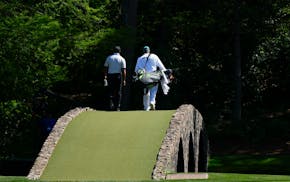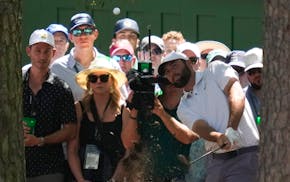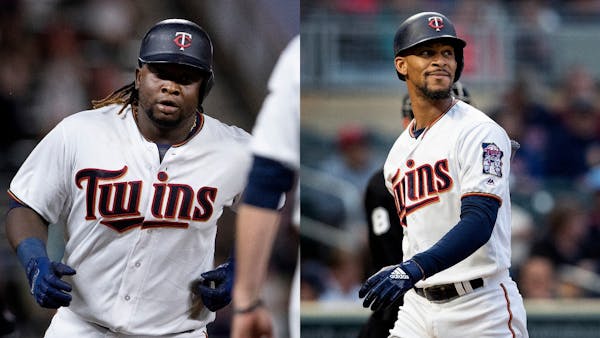Cleveland on Thursday made the kind of high-cost, precision trade that can decide a division and lead to a World Series. The move became the latest concerning development of the week for the tea-leaves-reading Twins.
By trading for All-Star closer and Minnesota native Brad Hand, along with rookie reliever Adam Cimber, Cleveland sacrificed an excellent catching prospect and provided a reminder that timing can be as important as talent.
The Twins won with a walkoff grand slam Sunday to finish a 9-2 homestand and raise hopes in the clubhouse that the front office would stand pat or look to add a key player or two via trade, but in the past six days, the team's hopes have taken these kidney punches:
• Center fielder Byron Buxton was placed on the disabled list at Class AAA Rochester because of a sore wrist. For a player whose iffy hitting mechanics were in the midst of an overhaul, the setback could prove costly.
• Third baseman Miguel Sano left his Florida boot camp to visit an ailing relative in the Dominican Republic just as he was to begin playing in games every day. Maybe a few days off won't hurt him, but it will slow his progress toward returning to the big leagues.
He is now three steps away — playing every day at Class A Fort Myers, cutting down on his strikeouts and then succeeding against Class AAA pitching. The delay won't help with a timetable that could prove crucial to the Twins' ability to chase Cleveland.
• Cleveland traded for Hand and Cimber, fortifying a poor bullpen that was the team's only obvious flaw. Cleveland ranks second in the American League in starter ERA and next-to-last in reliever ERA. Two-time All-Star reliever Andrew Miller, out since late May because of an inflamed right knee, is on a minor league rehab assignment and could return to the Indians soon.
The Twins have gone from being 7½ games behind a flawed team to being 7½ games behind a team that might be on par with the other powerhouse teams.
This is a reminder of the importance of timing in sports, especially for middle-market franchises that rely on the development of young players.
In 1987, the Twins that broke Minnesota's championship drought won only 85 games, taking advantage of a weak division, and might not have won the World Series if the American League wasn't in line to enjoy home-field advantage.
In 1991, the Twins, similarly, won only home games in the World Series, which was all they needed to do because of home-field advantage.
The endearing Twins teams of the 2000s capitalized on Cleveland's decline at the beginning of the decade to dominate a weak division.
This year the division again looks weak, with the exception of Cleveland, which sees a two-year window to win a championship with its current strong rotation and lineup.
Friday, the Twins begin the post-break portion of their schedule at Kansas City. The Royals have won one division title since 1985. In 2015, they won the Central, then the World Series, proving to the Twins of the 2000s that peaking at the right time for one season can be more rewarding than sustaining success.
This year's "race" between Cleveland and Minnesota can now be summarized by these transactions:
Cleveland cut Matt Belisle from Class AAA Columbus.
The Twins signed Belisle and added him to the major league roster.
Cleveland then traded for an All-Star closer.
The Twins could trade Lance Lynn and still make the case that they're trying to win the division, because of their organizational pitching depth.
But if they trade Brian Dozier or Fernando Rodney, they have signaled the premature beginning of spring training, 2019.
Jim Souhan's podcast can be heard at MNSPN.com. On Twitter: @SouhanStrib. • jsouhan@startribune.com

Souhan: Why Tiger Woods should keep swinging
Souhan: Scheffler wins Masters again, shows what makes him special
Morikawa falters in final round at Masters

Keeping up with the Joneses who helped design Augusta National's classic back nine


